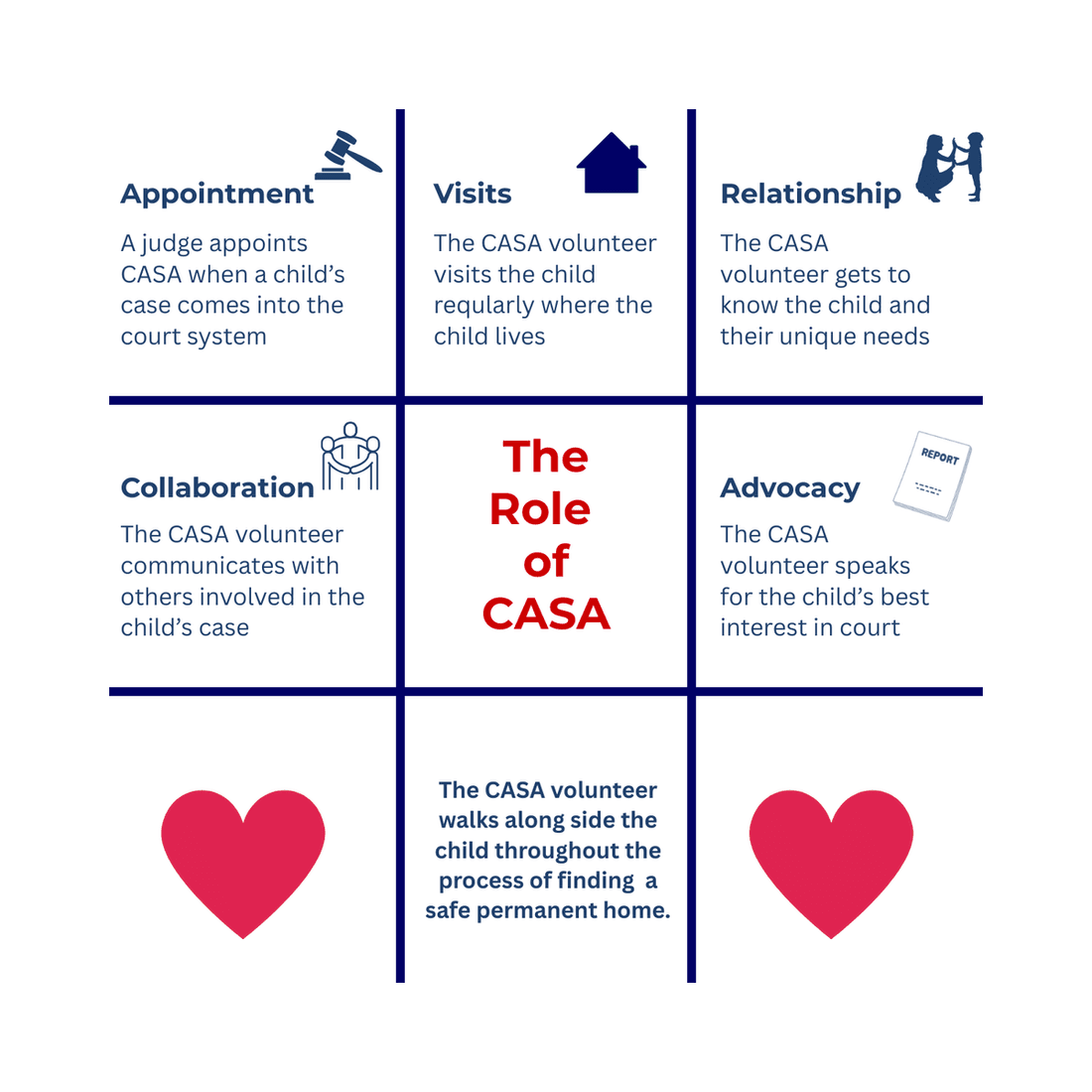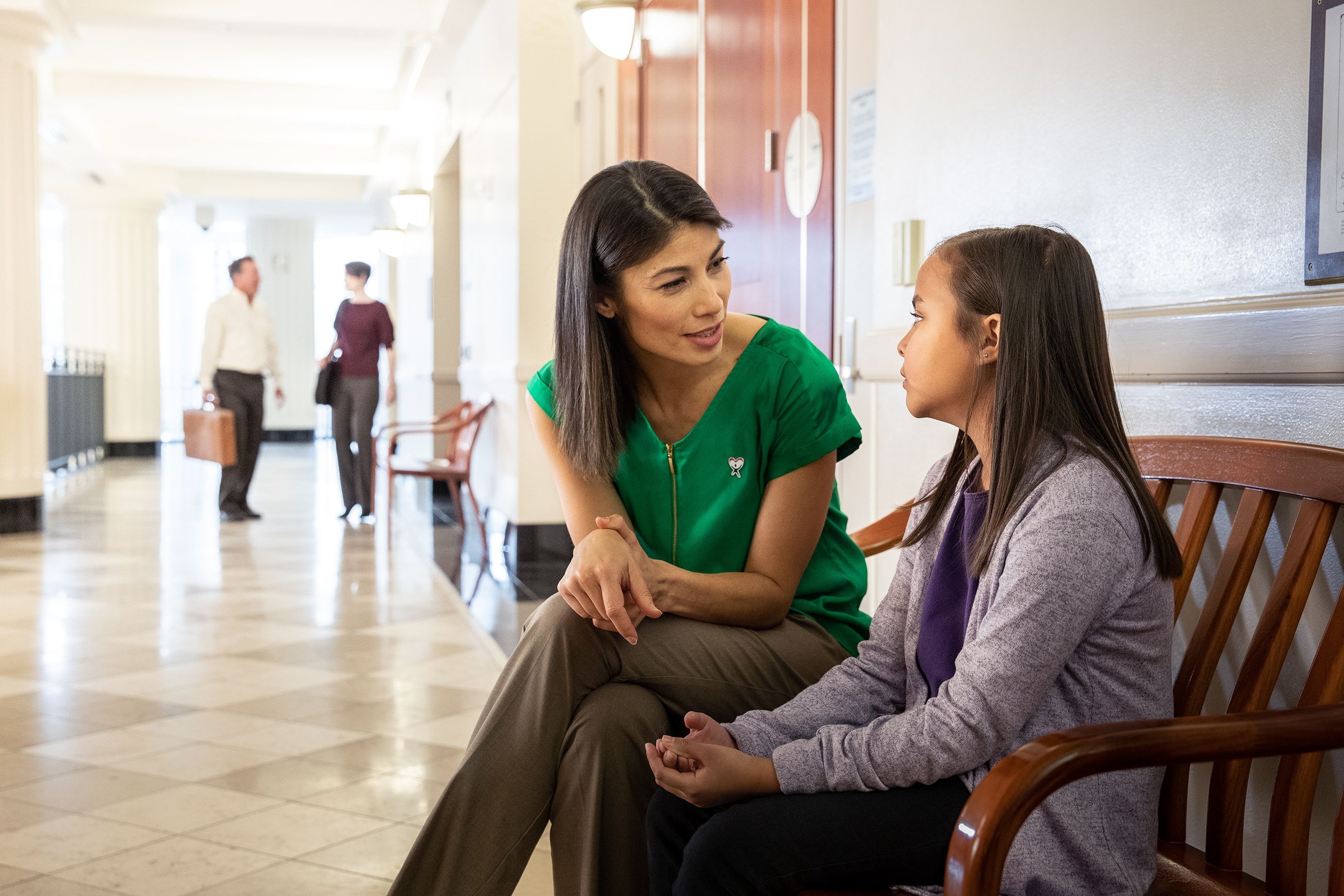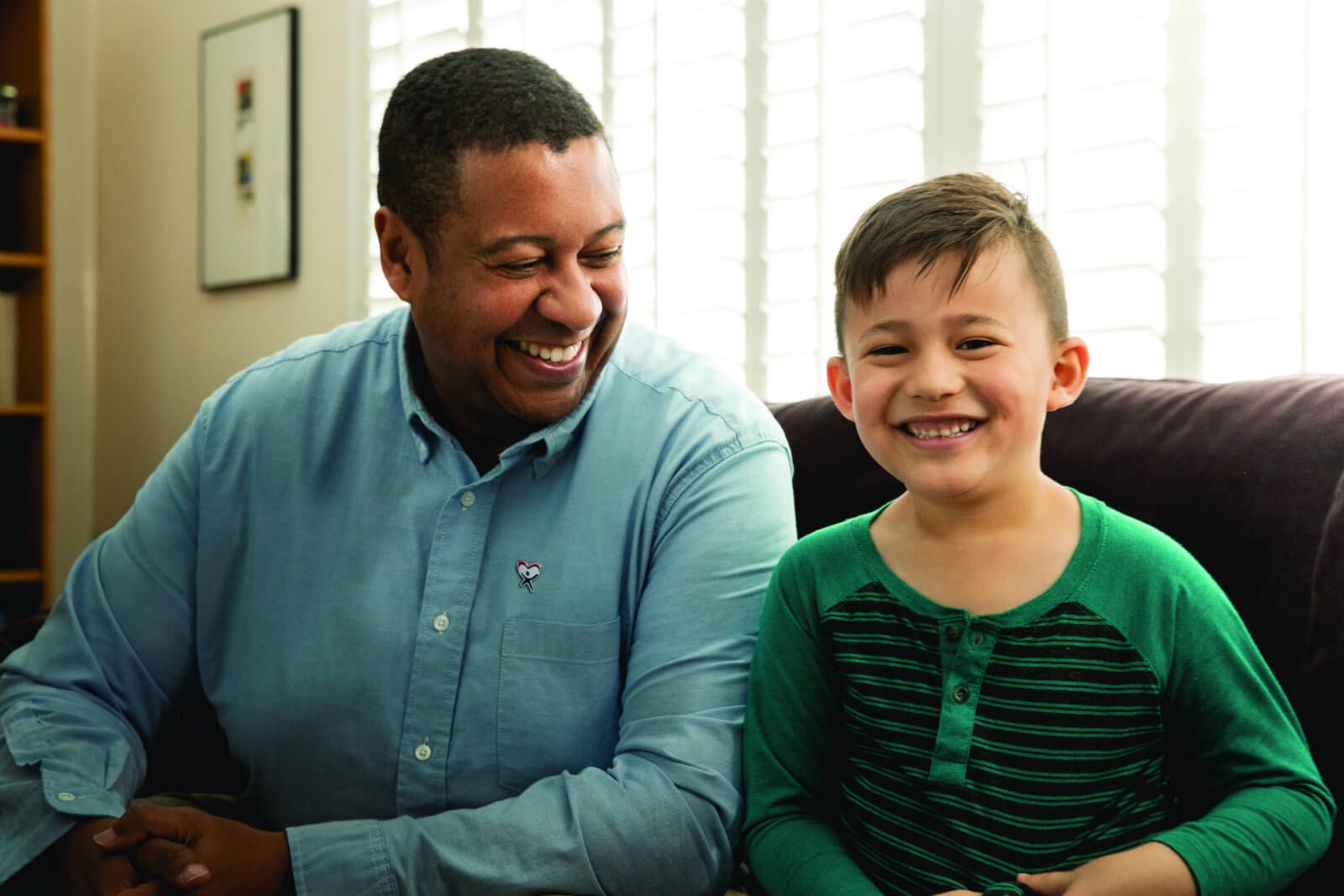Why volunteer with CASA?
Because you will have the opportunity to make a difference in the life of a child. You enter into a child’s life when their world has been turned upside down and simply say I care and I am going to be here for you. And then you show up month after month, year after year. Don’t underestimate the power of a smile, a kind word, a listening ear, an honest compliment, or the simple act of being there, all of which have the potential to turn a life around.
As a CASA you can:
- Be an important voice for the child because you are the only one solely focused on the child who spends time with them on a consistent basis.
- Provide emotional support for children during a period of uncertainty in their lives.
- Help a family through difficult times and keep children connected to their relatives and history.
- Provide information to the judge no one else has provided.
- Be a consistent presence and caring adult in the child’s life during this time of difficult transition.
- Ensure greater access to valuable services and resources.
- Provide educational advocacy for the child.
- Help prepare teenagers and older youth for independence after foster care.
- Meet passionate and inspiring people like yourself who devote their time, talents and efforts to helping children.
- Positively affect one child at a time, despite the insurmountable bureaucracy that is the child welfare system.
Becoming a CASA volunteer is a big commitment. One of the greatest gifts CASA volunteers provide to the children is consistency, so it is important to understand the dedication necessary to fulfill our mission.
Watch this short overview of the advocate role here or learn more below.
Volunteer Advocate FAQ

-
Who can volunteer?
You! Our CASA volunteers come from all walks of life with the common denominator being a desire to speak up for children. You do not need to have any child welfare experience or be a lawyer or social worker to be a volunteer. As a volunteer, you will go through pre-service training and then be supported by experienced program staff who will guide you through your case. No special background is required, but you must be able to keep information confidential, be able to work within established court and agency guidelines, possess good listening, communication and observation skills, and be able to prepare clear and concise written summaries of the information you gather.
-
I am employed full time – can I still volunteer?
Committing to this volunteer role could seem daunting if you are employed full time. However, the time commitment, while meaningful, may be less than you think. Our CASAs typically spend 10 hours or less per month on their cases. This time includes visiting the child; communicating with other involved professionals, such as teachers and social workers; and writing a court report for the judge.
Being a CASA while working full time is doable. The key is to have some flexibility in your schedule, be organized and manage your time wisely. Talk to your employer about the role – many are supportive of volunteerism! With daytime events such as court hearings and meetings, it might be challenging to switch around hours or take time off, but generally there is sufficient notice to facilitate this with your employer and these do not occur every month. Many working advocates can conduct their monthly visits around their work hours.
For many CASAs, the biggest time investment is made during the initial 30-hour training. We offer evening sessions and have some flexibility with self-directed learning options. However, we do require some in-person attendance, as the interaction between program staff and volunteers, as well as the camaraderie you develop with other classmates, is invaluable.
-
What are the responsibilities of a CASA Volunteer?
DuPage County, advocates are typically assigned to one family case at a time to represent a child or sibling group. Advocates are responsible for visiting the child(ren) in their placements on a monthly basis. Advocates will also review agency reports, court documents and other relevant records as well as talk to the child, foster parents, case workers and others involved in the child's case. Utilizing the information captured, the advocate then writes a report which is submitted to the Court. The judge uses the report to help her or him make decisions about the case, including the child's placement and treatment needs. The advocate will attend court on the scheduled court dates and may also attend other meetings connected to the child and/or case. Unlike the attorneys and social workers, however, the CASA volunteer acts exclusively as the eyes and ears of the judge in speaking for the child’s best interest.
-
How Much Time is Involved Being a CASA?
In addition to the 30 hours of initial training, you must complete 12 hours of continuing education credits (CEC) annually thereafter. These CEC can easily be obtained in numerous ways throughout the year on your own schedule through books, webinars, presentations and other opportunities. Advocates are asked to make a 24-month commitment to the program but staying with the case until it closes is ideal. Regarding the casework, a CASA volunteer’s time varies from case to case, week to week, month to month. No specific number of hours is requested; time is spent based upon the needs of the case. Visits to the children are based upon the schedules of the volunteer and families; court hearings and other meetings are set by the Court or others. In general, our Advocates spend up to 10-15 hours per month working on their case, with the average range being 3-6 hours.
-
How Does a CASA Benefit the Child?
There are many child advocacy programs, but CASA is the only program where the Juvenile Court appoints volunteers to represent a child’s best interest. Often the CASA is the only constant in the child's life during this traumatic time; the attorneys, caseworkers and even the judge may change. But CASA volunteers have the same child and stay with that child through the process. The CASA volunteer only has one case to focus on; other principals involved may have dozens of cases. CASA brings an “ordinary person, common sense” perspective to the case; other principals have institutional constraints. Studies have shown that when a child has a CASA, that child is more likely to receive services. But most importantly, simply by providing additional information that the Court would not otherwise receive, the CASA has made a difference in the life of the child.
To learn more about our training sessions and application process, please visit the Becoming an Advocate page.




